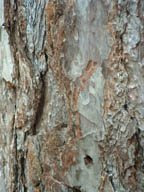what is a still life - part 2 looking at artists work - and a new seascape
Wild Day copyright Vivien Blackburn mixed media on paper
An unfinished painting I came across and finished off today, after painting the sides of some of those @&2+**@ canvasses - I HATE that job with a passion and usually keep up to date with them - but this time they were all 'in progress' and so all need doing :(
This was watercolour, oil pastel and coloured pencil, I added a touch of acrylic and it was finished.
Following on the last post I thought I'd look at contemporary still life that I find interesting and see what sort of objects they are using, what media and how they treat the subject.
First of all is Shirley Trevena - exciting, dynamic and vibrant watercolours with touches of mixed media. I love the excitement and buzz of her work, her glorious colours, her distortion of perspective, overlapping elements, tipping up tables or plates if it works to make a better painting - a delicious explosion of colour. You can see her work on http://www.shirleytrevena.com/ - I can highly recommend her books.
She uses flowers, pot plants, cut flowers, shoes, carrier bags, wrapping paper, windows and a zillion other things if they add to the composition, painting them loosely in settings with jugs, patterned cloth, nice china and geometric divisions - she uses colour and tone with great drama. Though the paintings appear so free and spontaneous, they may take days or weeks to complete.
I've never met her but her colourful hair and naughty smile bring to mind the poem When I am Old I will Wear Purple :) - she's practicing now :D.
Victoria Crowe at The Scottish Gallery, Edinburgh
Victoria Crowe, a Scottish Painter, incorporates objects/people and things that interest her in a very non-traditional manner, creating blocks and grids, simplifying and abstracting.
Elizabeth Blackadder, maybe best known for irises and cats, has done many very large still lifes, with a mix of articles, loosely linked, scale is abritrary - she paints them the size to fit her composition and not relative to each other. Each is painted separately, not set up and painted 'as is'. It's been difficult to find any of these online I'm afraid.
At the John Noott galleries in Broadway (Cotswolds UK not US!) there are colourful contemporary works by William Selby http://www.john-noott.com/artist/selby-rws-neac-rba-roi-rsw~william/selby-rws-neac-rba-roi-rsw~william.php , Caroline Bailey http://www.john-noott.com/paintings/paintings~subject~still-life/bailey-rsw~caroline/bailey-rsw~caroline.php, Nancy Murgatroyd http://www.john-noott.com/paintings/paintings~subject~still-life/murgatroyd~nancy/murgatroyd~nancy.php looking at the patterns made by colourful fruits, all of these are from their still life category online.
There are also a great many more traditional still life artists worth looking up there (and other contemporary artists) - but this is my blog and I'm writing about those I like! (and I'll sulk and take my ball home ..... ) one of these more traditional painters is Paul Seaton http://www.john-noott.com/paintings/paintings~subject~still-life/seaton~paul/seaton~paul.php who works in the tradition of Fantin Latour - old fashioned roses glowing off his canvasses.
Morandi
Georgio Morandi paintings don't show up well on the web and need to be seen in person. He simplifies objects, using a palette of neutral tones, playing with cool and warm to create interest.
A few years ago I saw an exhibition of the work of William Nicholson, father of the artist Ben Nicholson and really liked his work - much of it very Morandi-like and subtle - I actually preferred it to Morandi
There are of course the cubist still lifes of Picasso and Braque - I much prefer the work of Braque, his use of colour and way of using paint appeals to me. A few years ago I went to an exhibition of late Braque paintings at the Royal Academy and they had a real glow to them.
These are just a few looks at the genre of still life and in particular how contemporary artists are using it.
And finally I said that I didn't set my students traditional still lifes - instead I ask them to bring in things that mean something to them and interest them.
This is, I think, I stunning little painting by one student, Helen, of 2 tiny glass birds - the painting is larger than life size, about 10 inches across, the birds were maybe 2 inches. This is the talented student who made a great painting out of her bunch of keys. You need to start with something that interests you in some way, a challenge, and then it's up to you to make it an interesting painting by how you treat it.
Helen Rae copyright
What do you think of still life? an interesting subject? boring? are there 'rules'? should there be 'rules'? (hint: correct answer to last 2 questions in my book is NO! ) Do look at Katherine's thread with a fascinating history of still life http://makingamark.blogspot.com/ and let us know what you think :)







Comments
I'm trying to remember the name of the lady who always used to exhibit at the RWS and whose paintings used to be PACKED with objects.
The Cornish painters always seem to look like they should be sold in a gallery for Californian minimalists with white and taupe walls!
Thanks for the mention.....
Yes I agree about the Cornish work! I think my paintings too look best on white/cream walls with space to breathe :)
drb - very true - hope you enjoy the links :)